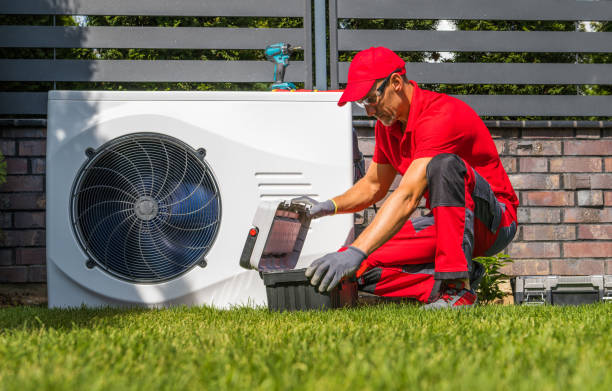

Installing a heat pump in your home is a smart investment that offers numerous benefits. Heat pumps provide efficient heating and cooling, making them a versatile and cost-effective solution for year-round comfort. Here are ten major benefits of installing a heat pump in your home:
One of the most significant advantages of heat pumps is their energy efficiency. Unlike traditional heating systems that generate heat by burning fuel, heat pumps transfer heat from one place to another. This process requires less energy, resulting in lower energy consumption. According to the U.S. Department of Energy, heat pumps can reduce electricity usage for heating by approximately 50% compared to electric resistance heating.
Heat pumps use electricity to move heat rather than generate it, making them more efficient. For every unit of electricity consumed, a heat pump can produce three to four units of heating or cooling. This efficiency translates into lower utility bills and a reduced carbon footprint, contributing to environmental sustainability.
Heat pumps provide both heating and cooling capabilities, making them an all-in-one solution for year-round comfort. During the winter, heat pumps extract heat from the outside air (even in cold temperatures) and transfer it indoors to warm your home. In the summer, the process is reversed, and the heat pump removes heat from your home, providing efficient cooling. With affordable heat pump installation service, homeowners can easily access this efficient technology and enjoy consistent indoor temperatures throughout the year.
This dual functionality eliminates the need for separate heating and cooling systems, saving space and reducing maintenance requirements. With a heat pump, you can enjoy consistent indoor temperatures and a comfortable living environment throughout the year.
The energy efficiency of heat pumps directly translates into cost savings on your energy bills. While the initial installation cost of a heat pump may be higher than traditional heating systems, the long-term savings on energy costs can quickly offset this expense. Over time, the reduced energy consumption can lead to significant savings, making heat pumps a cost-effective investment.
Additionally, many utility companies offer rebates and incentives for installing energy-efficient heat pumps. These programs can further reduce the upfront costs and make heat pumps an even more attractive option for homeowners looking to save money.
Heat pumps are an environmentally friendly choice for heating and cooling your home. By using electricity to transfer heat instead of burning fossil fuels, heat pumps produce fewer greenhouse gas emissions. This reduction in emissions helps to combat climate change and contributes to a healthier planet. Additionally, considering the effect of climate change on AC systems, adopting heat pumps can be a proactive step towards sustainability and resilience.
Many heat pumps can be powered by renewable energy sources, such as solar or wind power. By pairing a heat pump with renewable energy, homeowners can further reduce their carbon footprint and move towards a more sustainable energy solution.

Heat pumps can improve indoor air quality by filtering and circulating the air in your home. Many heat pumps are equipped with advanced filtration systems that remove dust, allergens, and other airborne particles. This filtration helps to create a cleaner and healthier indoor environment, particularly for individuals with allergies or respiratory conditions.
Heat pumps also help to maintain optimal humidity levels. In the cooling mode, heat pumps remove excess moisture from the air, preventing the growth of mold and mildew. In the heating mode, heat pumps can add moisture to the air, preventing dryness and improving overall comfort.
Heat pumps are known for their quiet operation compared to traditional heating and cooling systems. Modern heat pumps are designed with advanced technology to minimize noise levels, making them an ideal choice for residential use. The outdoor unit of a heat pump is typically quieter than an air conditioner, and the indoor units operate with minimal noise, providing a peaceful and comfortable indoor environment.